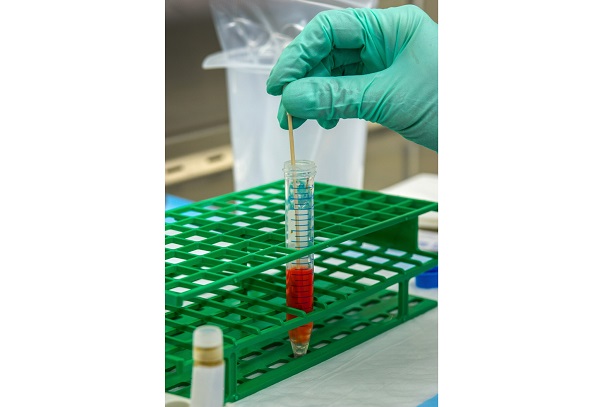 Credit: LIH
Credit: LIH
The Luxembourg Institute of Health (LIH) has reported that scientists based in the Grand Duchy recently made a discovery that is expected to advance diagnosis of Parkinson's disease.
In a new study published in the journal Nature Communications, scientists from the LIH, in collaboration with the Luxembourg Centre for Systems Biomedicine (LCSB) of the University of Luxembourg, have unlocked a "crucial key" to early Parkinson's disease diagnosis.
Their research introduces non-invasive cellular immune biomarkers that could redefine how this complex neurodegenerative disease is identified and addressed in the near future.
Parkinson's disease, the second most common neurodegenerative disorder (affecting about ten million individuals globally), is still posing diagnostic challenges, noted the LIH. Normally diagnosed through a combination of medical history, symptoms and a neurological exam, the typical slow onset makes early detection a complex task. Symptoms, such as tremors, slowness of movement, muscular rigidity and impaired balance, appear slowly and variably, making an accurate diagnosis of the disease, particularly in the early stages, "very difficult".
A team of researchers from the LIH and the LCSB have addressed this challenge head-on, providing a "novel, easily-accessible, validated, early-window" biomarker in the blood that could aid in the diagnosis and impact the prognosis of Parkinson's disease. The work establishes a "clear link" between disturbances in the peripheral immune system and Parkinson's disease, which appears to be particularly relevant in the early stages of the disease.
According to the LIH, this discovery marks "a major step forward" towards the development of better clinical diagnostic methods: by simply analysing circulating immune cells in a tube of a patient’s blood samples, this technique could provide "highly precise" answers within about five hours.
"Our work demonstrates, for the first time, a tangible connection between a disrupted peripheral immune system and a chronic brain disease like Parkinson's. This could have far-reaching diagnostic implications, especially for patients without a defined genetic cause for their condition," highlighted lead scientist Dr Feng Hefeng from the LIH Department of Infection and Immunity.
The researchers built on their previous work about rare familial forms of Parkinson's disease.
"It's an exciting time for Parkinson's disease research, marked by promising new discoveries that can greatly enhance diagnostic capabilities," explained Dr Clarissa Gomes, programme manager of the National Centre for Excellence in Research in Parkinson's Disease (NCER-PD) at LCSB.
This work was a joint effort with the NCER-PD Consortium, including the Parkinson's Research Clinic at the Centre Hospitalier de Luxembourg (CHL), and was a collaboration with the LIH Clinical and Epidemiological Investigation Center (CIEC), the processing and biorepository teams of the Integrated Biobank of Luxembourg (IBBL) and the LuxGen sequencing.









